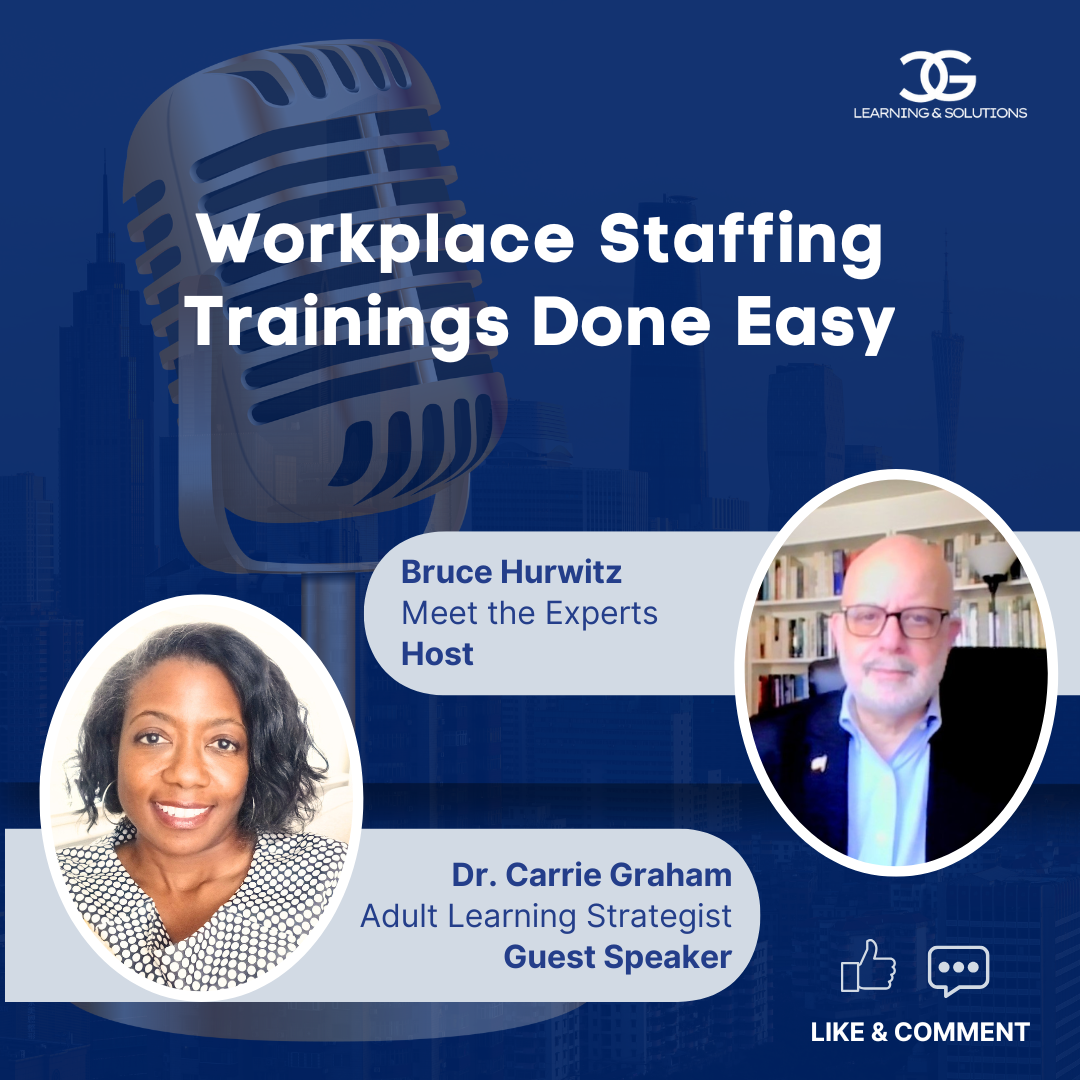Episode Summary
In this episode of "Meet the Experts," host Bruce Herts interviews Dr. Carrie Graham/ The conversation covers training assessment, adult learning principles, facilitation skills, and the strategic importance of training in organizational growth.
Listen Here > https://youtu.be/0JnxSA_u9SM?si=blqDKLWRMDt_SQEV
10 Key Points
- Training Evolution is Essential: Organizations often keep the same training programs while their employee demographics and client base change, leading to misalignment and reduced effectiveness.
- Adult Learning Principles Matter: Many businesses use training methods developed for children rather than applying research-based adult learning principles, which significantly impacts training outcomes.
- Assessment Framework: Dr. Graham uses a comprehensive training assessment that evaluates audience engagement, content structure, business alignment, and most importantly, real-world application of learned skills.
- Facilitator Impact is Critical: The trainer/facilitator can make or break even the best curriculum - their approach, authenticity, and learner-centered focus are crucial to success.
- Learner-Centered vs. Knowledge-Keeper Approach: Effective training moves away from the traditional "sage on stage" model to focus on learner engagement and participation.
- Authenticity Over Performance: Trainers should leverage their natural skills and authentic personality rather than trying to perform or be someone they're not.
- Strategic Alignment: Training programs should reflect and support company values, mission, and strategic goals - if a company values innovation, their training should foster innovative thinking.
- Measurement and Application: The most important metric for training success is how much participants actually apply what they've learned, not just their satisfaction or engagement during the session.
- PowerPoint Limitations: Research shows that virtually no one remembers PowerPoint slides, suggesting organizations should consider alternative presentation methods.
- Personal Mission: Dr. Graham's work is driven by her experience with ineffective mandatory training in healthcare, leading to her mission to "rid the world of bad training."
10 Takeaways/Action Items
- Conduct Regular Training Audits: Regularly assess whether your training programs still align with your current workforce demographics and business needs, not just annual satisfaction surveys.
- Implement Adult Learning Principles: Review your training content and methods to ensure they follow adult learning research and theory rather than child-focused educational approaches.
- Focus on Application Metrics: Shift your training success metrics from attendance and satisfaction to measuring actual application of skills and knowledge in the workplace.
- Invest in Facilitator Development: Evaluate and develop your internal trainers' facilitation skills, focusing on learner-centered approaches rather than traditional lecture-style delivery.
- Align Training with Company Values: Audit your training programs to ensure they actively support and reinforce your stated company values and strategic objectives.
- Create Calm, Stress-Free Learning Environments: Reduce anxiety and stress in training situations to improve learning outcomes and participant engagement.
- Leverage Trainers' Natural Strengths: Help trainers identify and use their authentic personality traits and natural skills rather than forcing them into a standard presentation mold.
- Consider Alternative Presentation Methods: Move away from heavy reliance on PowerPoint slides and explore more engaging, memorable presentation formats.
- Address Training-Strategy Gaps: If your company claims to value employees but has subpar training programs, address this strategic inconsistency that may be affecting morale and performance.
- Establish Ongoing Training Improvement Process: Create a systematic approach to continuously evaluate and improve training effectiveness rather than treating it as a one-time setup.
Resources
